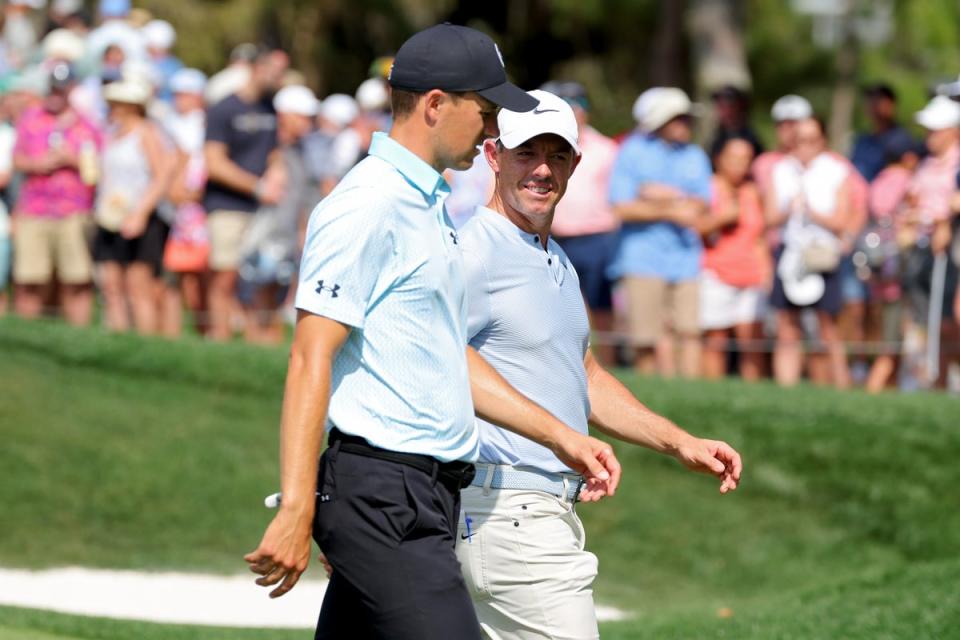‘It got pretty messy’: Rory McIlroy’s efforts to rejoin PGA Tour policy board rejected

Rory McIlroy has revealed that he will not be making a return to the PGA Tour policy board, citing uneasiness from current board members over his potential comeback.
The Northern Irishman only resigned from his player director role in November but recent reports suggested that the world number two was set to return to his post to help in ongoing talks with Saudi Arabia’s Public Investment Fund (PIF).
Webb Simpson had offered to resign his place in McIlroy’s place but, speaking ahead of this week’s Wells Fargo Championship, the four-time major champion said that his potential return had made some feel “uncomfortable”.
“It just got pretty complicated and pretty messy,” McIlroy said. “With the way it happened, it opened up some wounds and scar tissue from things that have happened before. And I think there was a subset of people on the board who were uncomfortable with me coming back on for some reason.
“I think the best course of action is if there are some people on there who aren’t comfortable with coming back on, then I think Webb [Simpson] stays on and sees out his term. He’s got to a place where he’s comfortable with doing that. I just keep doing what I’m doing.
“I put my hand up to help. I wouldn’t say it was rejected. I would just say it was a complicated process to put me back on there so that’s all fine. No hard feelings and we’ll all move on.”
McIlroy has become a major proponent of a deal with the PIF, which bankrolls LIV Golf, as a means of uniting the rival factions and ending the divisive and ongoing civil war in men’s professional golf.

However, notable members of the policy board such as Jordan Spieth have voiced an opposite opinion, suggesting that the PGA Tour’s $3billion deal with American consortium Strategic Sports Group has allayed the need to ink a deal with the Saudis.
Mcllroy also suggested that some PGA Tour players may have reservations about LIV players returning as well as the potential of an increasingly global schedule.
“It could be if we go to more of a global schedule, do the American players that are used to playing all their golf in America want to travel outside of the States 12 times a year to play tournament golf, you know? That’s a consideration,” he said when asked about potential differences that could be hampering negotiations.
“There’s [also] the fact that if we all sort of come back together - would it be palatable to the rest of the membership if they come back after seeing out their contract and they’ve financially got ahead by potentially hundreds of millions of dollars over the people that stayed. That’s a consideration.”
